Beth Kephart's Blog, page 64
November 18, 2014
my newest pottery experiments are enlivened by purple
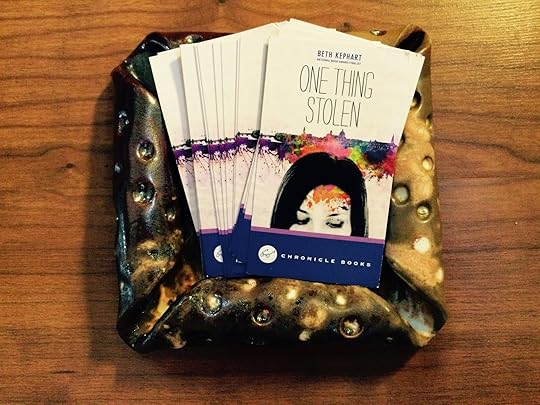 I've been experimenting with new shapes and cone 10 firings at the Wayne Art Center.
I've been experimenting with new shapes and cone 10 firings at the Wayne Art Center.Yesterday the browns and reds of my newest business card holder were enlivened by purple, thanks to the graciousness of the Chronicle Books team.




Published on November 18, 2014 05:50
Introducing a new indie press and a debut novelist: Kate Gray/Carry the Sky/Forest Avenue Press
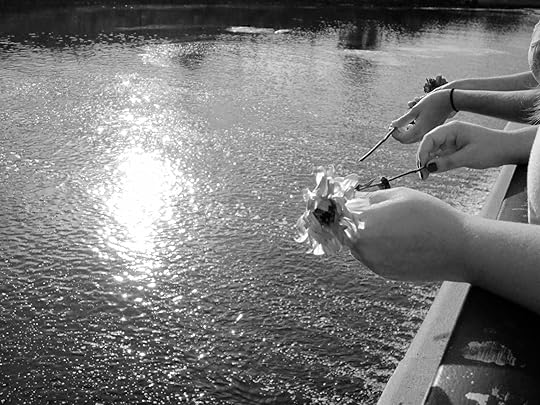 A few weeks ago, a note arrived from Laura Stanfill, the publisher of a brand-new press called Forest Avenue. Laura knew of my interest in the Schuylkill River. She'd been talking with a mutual friend (the fabulous Colleen Mondor, a fabulous author AND indie publisher). She wondered, she wrote, if I'd be interested in taking a look at a new novel by an award-winning poet named Kate Gray, a book, she said, that "is an unblinking look at boarding school bullying based on Kate's first year as a teacher, with a strong rowing emphasis, including a major plot point that happens on the Schuylkill." The book, Laura continued, "celebrates the river's strength and beauty—and its rowers." It has already been celebrated by writers like Hannah Tinti (about whom I once wrote here), Ron Carlson (whose work I love and mentioned here), and Christopher Buckley.
A few weeks ago, a note arrived from Laura Stanfill, the publisher of a brand-new press called Forest Avenue. Laura knew of my interest in the Schuylkill River. She'd been talking with a mutual friend (the fabulous Colleen Mondor, a fabulous author AND indie publisher). She wondered, she wrote, if I'd be interested in taking a look at a new novel by an award-winning poet named Kate Gray, a book, she said, that "is an unblinking look at boarding school bullying based on Kate's first year as a teacher, with a strong rowing emphasis, including a major plot point that happens on the Schuylkill." The book, Laura continued, "celebrates the river's strength and beauty—and its rowers." It has already been celebrated by writers like Hannah Tinti (about whom I once wrote here), Ron Carlson (whose work I love and mentioned here), and Christopher Buckley.Laura went on to describe Forest Avenue Press, which has recently signed with a division of the distributor PGW/Perseus and which (pay attention to this) is opening nationally for submissions in January.
A new, award-winning press with promise, I thought.
An editor who deeply loves her authors and is committed to finding a broad audience for her work.
A poet novelist.
The river.
I'm in.
Yesterday and early this morning I've been reading Carry the Sky, this newly launched novel. Gray is a poet all right—a fierce one, a smart one, a writer who knows her rowing, her rivers, the claustrophobia of boarding school bullying, the ache of loss, Physics, and origami. She tells her story through the alternating voices of a Delaware boarding school's new rowing coach and the Physics teacher—both of whom are operating within a haunted psychic space. She tells her story with urgency and with details—physical and emotional—that are wholly unexpected. No cliches here, not in this urgent novel.
For example: Here is Taylor, the rowing coach, in a field with a boy who is different, a boy talking about death, a boy around whom the plot will soon turn:
The flocks of geese in these fields made the ground come alive. Their way of feeding and calling made a hum, something steady. "Why are you talking about death?" His face jerked left like a machine, then jerked right. Without looking at his face, I put the dinosaur on his blanket.In a Q and A at the end of Carry the Sky, Kate Gray speaks of the road she took toward publishing. It wasn't an easy one. It required fortitude—eight years to write the book, two years to revise it, a series of rejections, and then the balm of a writing group:
"Why do you like rowing?" he asked. The question was drum roll, cymbal crash, horn.
It was something to do with not wanting to feel pain but wanting to know pain. Like wanting to know fire. You light it in front of you, the colors all over the place, the heat all over your skin, but you don't want to burn or anything. I don't know, but I understand him a little more in the middle of that field, with geese all over everywhere, geese getting along with the swans, and all of us finding a place to land.
After I had written and rewritten a complete draft, received rejections when I sent the manuscript out, my indefatigable partner gathered a group of twelve friends to our house for potlucks once a month, and we read the entire draft out loud. Their questions and insights were invaluable. Reading the whole thing out loud let me hear the gaps, the promise.And so, to a riveting debut novelist, to a brand-new press, to the partner who cared, to the friends who listened, to the rivers that haunt and sustain us — many congratulations on a work of art.




Published on November 18, 2014 04:31
November 17, 2014
Celebrating two new young adult Chronicle Books: "The Revelations of Louisa May" and "The Water and the Wind"
 This coming Friday and Saturday I'll be in Washington, DC, for the NCTE, signing and talking about One Thing Stolen.
This coming Friday and Saturday I'll be in Washington, DC, for the NCTE, signing and talking about One Thing Stolen.But the best part of events such as these is the conversations one has with other authors and educators. With people who get books, and love them.
A few days ago, Jaime Wong, the lovely marketing coordinator for Chronicle Books/Children's, sent copies of two books by the authors with whom I'll be sharing a Friday evening meal (alongside educators and the Chronicle team).
The first, by Michaela MacColl (Always Emily, Nobody's Secret, Prisoners in the Palace), is a mystery called the Revelation of Louisa May. Michaela, who I first met in Boston last year, specializes in the "intertwining of the facts of a beloved author's real life with a suspenseful fictional tale." Here we meet the great Louisa May Alcott as a teen—her principled family struggling to make ends meet, her home a station stop for runaway slaves, and Emerson and Thoreau counted among neighbors and friends. Louisa has a lot on her hands when we first meet her, and there will be plenty of excitement ahead, as Louisa's mother leaves for a stint at paying work, a runaway is kept hidden in the house, a slave catcher comes to town, and a mystery erupts. There's a reason these Michaela books are so popular—just the right amount of history, just the right amount of maybe, and an intriguing historical lesson for teens.
The second book in my package is by the debut author K.E. Ormsbee. Called The Water and the Wild, it is graced with a most gorgeous illustrated cover by Elsa Mora. It is a charming fantasy that takes its heroine down through the roots of apple tree to another world "in pursuit of the impossible: a cure for the incurable, a use for the useless, and protection against the pain of loss." The language here beguiles:
Lottie, like any red-blooded girl, had been taught to get out of the way of things like speeding convertibles and masked men with guns, but she had never expected to have a run-in with a homicidal tree. More than that, and what confused Lottie the most in the split-second she had to realize that she was about to get smashed to smithereens, was that she had not seen any lightning. If she was going to be killed by a falling tree, Lottie thought in that last moment of cognizance, she wished it would have at least had the decency to get struck by lightning first. That would have been a much more dramatic way to go.
Look for both these books from Chronicle Books next April.




Published on November 17, 2014 04:27
November 16, 2014
My Life as a Foreign Country/Brian Turner: Reflections
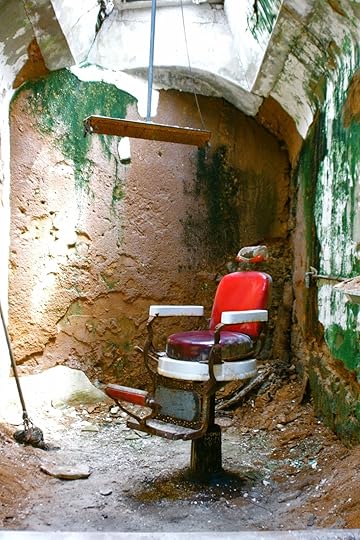 I published three books with Alane Salierno Mason and W.W. Norton years ago, and every now and then, Alane returns—her words on a page, that page slipped inside a book she's been working on.
I published three books with Alane Salierno Mason and W.W. Norton years ago, and every now and then, Alane returns—her words on a page, that page slipped inside a book she's been working on.A few weeks ago, My Life as a Foreign Country showed up at my door—a new war memoir by the poet Brian Turner. I had been living a long, solid stretch of distracting diminishings. I had been finding it nearly impossible to read—no time for it, or no energy when the hour was to be had. I had a mile-high stack of other books that had been sent my way, of requests I couldn't get to, of requests I was meeting instead of reading, but something about this one book commanded my attention. I kept clawing my way back to it, read it by half page and full page, by train ride, in a room brightened at 3 AM by a lamp.
Because My Life breaks the rules, I liked it. Because it reads more like a hallucination than a life. Because Turner doesn't set aside his poetry in writing prose.
Turner's memoir tells us something of his Sergeant years in Iraq, something of the wars his grandfather, father, and uncle fought. He slides in and out of what he remembers and what he conjures—taking the powers of the empathetic imagination to an entirely new realm. He sees the thoughts of the suicide bomber, sings the song of the bomb builder, lives for and maybe beyond the enemy. The dreams are feral and the details are specific, and Sgt Turner is dead, too, but he is writing his death down, he is writing himself into the final page and "there is nothing strange" in all of that.
Earlier this morning (it seems a year ago now) I was finishing a book of my own, responding to final manuscript queries. I was asking myself how one authentically renders shock.
My Life authentically renders shock. It reveals how the terror lives on, how it knocks on the door, how it enters the room, how it watches you sleep with your wife. Years on, the shock does that. The war, Turner tells us, is never done.
The language smears and catches. It sounds like this:
This is part of the intoxication, part of the pathology of it all. This is part of what I was learning, from early childhood on—that to journey into the wild spaces where profound questions are given a violent and inexorable response, that to travail through fire and return again—these are the experiences which determine the making of a man. To be a man, I would need to walk into the thunder and hail of a world stripped of its reason, just as others in my family had done before me. And if I were strong enough, and capable enough, and god-damned lucky enough, I might one day return clothed in an unshakable silence. Back to the world, as they say.This spring, my creative nonfiction students at Penn will assess and learn from the poetry of Sgt. Turner.




Published on November 16, 2014 13:57
At Radnor High: A warm welcome, graffiti art and two poems
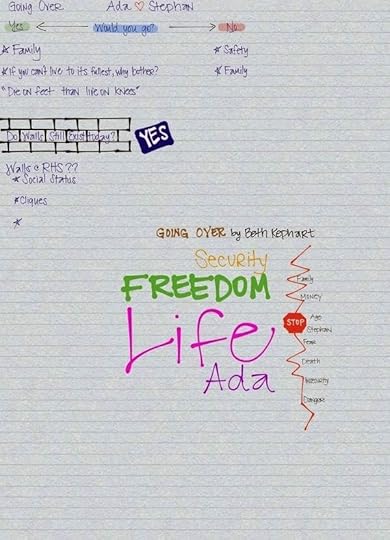 At Radnor High, I was hosted by the exquisite Michelle Wetzel and Fran Misener and that most fabulous Molly Carroll Newton (of Radnor Memorial Library). There were brownies, pretzels, sandwiches. There were students who had much to say, teachers who made room for the session, a vibrant and vast library world. There was a story about a family member who lost his life in East Berlin because he would not relinquish his bicycle to the guard. There were healthy debates about risks and choices. There were the kinds of conversations that leave a happy buzz inside my head.
At Radnor High, I was hosted by the exquisite Michelle Wetzel and Fran Misener and that most fabulous Molly Carroll Newton (of Radnor Memorial Library). There were brownies, pretzels, sandwiches. There were students who had much to say, teachers who made room for the session, a vibrant and vast library world. There was a story about a family member who lost his life in East Berlin because he would not relinquish his bicycle to the guard. There were healthy debates about risks and choices. There were the kinds of conversations that leave a happy buzz inside my head.The art above is by Fran Misener, one of my hosts for the day. (I so love this.)
The poem below is by Eun-Soo Park, who leads the book club at Radnor High and who had me sign his copy of Going Over for a friend who was off on a field trip that day. She really wanted to meet you, he said. So I think I should give the book to her. (I so love that.)
Eun-Soo wrote:
The Cost of Freedom
Waiting with words trapped within
Ready to burst with irrepressible emotion
Unable to make a choice
For fear of stumbling into regret.
Bonds broken, lives at stake,
Stuck with a feeling of stasis.
Time passes.
Every second, a wasted opportunity.
What stops a fleeting rush toward freedom?
The danger, the worry, the risk of death.
But what really hinders the dreams of life
Is believing that one can exist without freedom.
Jake wrote as well. I share his words here as emblematic of many of the wonderful words the students of Radnor High produced during our time together:
The promised land is a distant light,My work with these students is not done. My pleasure is ongoing.
A chasm, deep and dark.
Too wide to see where it ends
Crossable, but with a steep cost.
The fear of the unknown: the final barrier.
Finally, Ms. Wetzel gave me a gift of air which also turned out to be (surprise) a pair of air-colored earrings. I believe that it was those very earrings that got me through a long ride and a final river talk yesterday. Michelle, you were there with me.
(I so love that.)




Published on November 16, 2014 04:27
November 15, 2014
What Florence is to you (and the winner of One Thing Stolen)
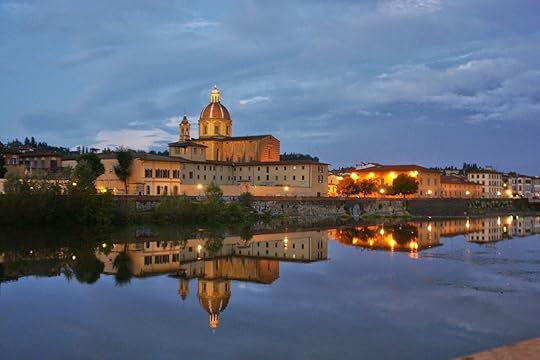 I asked readers of this blog to tell me something about the way they think of or remember Florence. What is that building, that bit of landscape, that dish, that way of walking, that weather that is Florence to you?
I asked readers of this blog to tell me something about the way they think of or remember Florence. What is that building, that bit of landscape, that dish, that way of walking, that weather that is Florence to you?On my blog and over Facebook they answered—so many lovely responses that I find myself simply wanting to list them here. To you, to those who stopped by, Florence is (in part):
The trip Florinda and her art major husband will take to Italy before this decade is through.This morning I've asked my sleepy husband to give me a number (each entry had a number). His number correlates with Amy, who said that Florence is, to her, the cement slab that sloped down toward the river (and where she wrote in her journal).
That moment when Sandra Bullock says, in "While You Were Sleeping," "And there would be a stamp in my passport and it would say Italy on it."
A statue of Bacchus.
The stories Hilary's backpacking sister would tell.
The cement slab that sloped down toward the river.
The smell of leathergoods shops on the Ponte Vecchio.
Florence and the Machine.
A woman named Florence who helped Lisa feel hopeful about staying intellectually engaged at any age (and being kind while you are at it).
Outdoor cafes and hot waiters who are working to pay for their art.
The Palazzo Vecchio, the Uffizi Gallery, the Duomo, a city close to the city where George Clooney got married.
Two small gold rings.
An art history class.
Renaissance art.
The nearby beaches.
The similarities between the Arno and the Schuylkill (woman after my own heart, that Victoria Marie Lees)
A mother, now gone, who lived the dream of traveling Italy.
(And so much more.)
Amy, I can't tell you how cool it is that you have been randomly selected, for a very major scene in One Thing Stolen takes place on that very cement slab. Please send along your mailing address so that I can send you a copy of the book.
Looking forward to seeing my Chronicle friends and the teachers of NCTE (and wonderful, intelligent, blessing-of-a-friend Debbie Levy!!!!!!) next Friday/Saturday in Washington, DC, where more copies of One Thing Stolen will be shared. I'll be at the Chronicle Booth at 3 PM on Friday.




Published on November 15, 2014 04:17
November 14, 2014
Returning to Radnor High to Talk the Wall
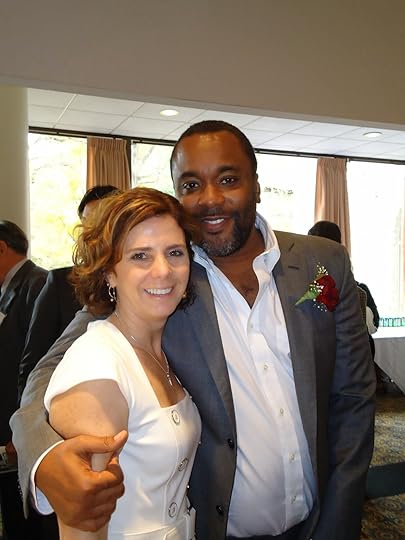
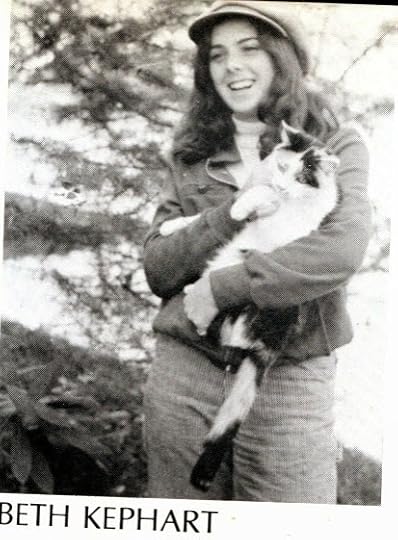
Today I'll return to Radnor High, where I learned the periodic table, Algebra 2, Shakespeare, poetry and a little something about people.
I'll be talking about Going Over and the Berlin Wall.
I'll also be remembering the Beth of long ago and the Beth of 2010, who stood with the great filmmaker Lee Daniels and others celebrating the school that partly shaped us.
I am deeply grateful that so many Radnor alums have returned to my world in recent years. I continue to learn from them.
With thanks to Molly Carroll Newton, Michelle Wtezel, Fran Misener, and Ellen Tractenberg.




Published on November 14, 2014 04:49
November 13, 2014
just ahead of winter, at Chanticleer, with Rob Cardillo


The rain was just beginning to fall as Rob Cardillo and I set off down the hill of Chanticleer. The glorious garden is closed now for the winter, but Rob, a tremendous photographer (see his images here), was taking portraits for a new project now under way with our mutual friend, Adam Levine.
I've contributed in a small way to the project and agreed to an accompanying portrait if (and only if) Rob kept me in the far distance of his images.
He kept that promise.
I snapped these two photographs in between takes.




Published on November 13, 2014 14:59
One More Thing: your last chance at a first galley copy (and come see me at NCTE)
On November 15, one reader/commenter on this blog (see details here) will be named the winner (that sounds like such a big word; let's try recipient) of One Thing Stolen, my novel due out in April 2015 from Chronicle Books. At the heart of the novel lies a ravaging flood that swept through Florence, Italy, on November 4, 1966 and destroyed some of the most important art of the civilized world. The footage above tells the story. The flood is one of three obsessions that I explore in this novel about then and now.
On November 21st, during NCTE, I'll be at the National Harbor Convention Center signing copies of One Thing Stolen at the Chronicle booth. Please come and visit if you can. 3:00 PM is our signing hour.
Again, go here for your chance at an early copy.




Published on November 13, 2014 11:48
Tomorrow is a new day. Live it.
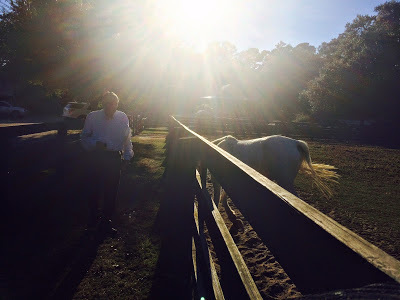 Let's acknowledge this:
Let's acknowledge this:It isn't easy out here.
We have dreams, and the path ahead isn't clear. We were promised, and the promise vanishes. We love, but some of those we love are missing. We are full of hope and that hope is splintered (compromised) by the facts as we know them, the counts against us, the world as it is, so much that is breaking apart.
In the afternoon a neighbor tells a heartbreaking story.
In the evening a friend writes of hurt.
In the morning a shattering email arrives.
Desire is so open-ended.
Tomorrow is a distance.
Certainty is breached.
Today, following a legendary four-and-a-half-month search—dozens of interviews, so many almosts—my son begins a new job. Nothing has ever mattered to me more than his happiness and, let's face it, I am nearly powerless. In the end, he did it all—strategically searched, persevered, did the work on complex projects, showed up for the interviews, landed the job.
I don't know what tomorrow will bring. Nothing seems sure to me anymore. What I know is what I continue to learn from my son—about holding fast, not giving up, enduring through optimism, placing faith in creativity. Again and again, since July, my son has told me this simple and profound tale: Tomorrow is a new day, and a new chance.
Take it.
For all those I love, for those who are hurting, for those who can't see through the windowpanes just now: Tomorrow will come and with it some sun.




Published on November 13, 2014 05:32



